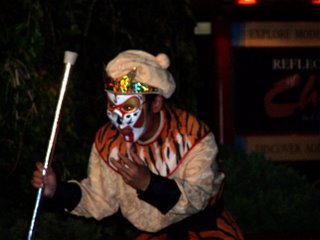Holidays Around the World: China

in 2007, the Chinese New Year starts on February 18. the Chinese New Year season is a fifteen day celebration that starts on the date of their New Year & ends with the colorful Lantern Festival on the evening of the fifteenth day. the first week of the New Year season is the most important, celebrated with visits to friends & family. leading up to the New Year, Chinese families give their homes a thorough cleaning to sweep away bad luck & make them ready for the arrival of good luck. on New Year's Eve, all brooms & dust pans are tucked away to prevent the good luck from swept away accidentally. then, that night, a reunion dinner is held. family members gather together for a celebration & a traditional feast.
the first day of the New Year is for welcoming their gods of the heavens and earth. New Year's Day is also celebrated within the family. they gather in the morning & the senior members of the family present red envelopes to the unmarried junior family members. the red envelope is a packet containing a monetary gift. the red color of the packet is a symbol of good luck & the amount of the gift enclosed is usually in a number that the Chinese consider to be lucky. it is on New Year's Day that we often see the Lion dance troupes performing their symbolic ritual to usher in the New Year & to force away bad spirits. the Chinese firecrackers are also believed to scare away evil spirits. the second day of the New Year is for visiting with one's in-laws. the third & fourth days are not appropriate for visiting relatives, because it is believed that they are conducive to argument (possibly from spending so much time together over the past two days!). the fifth day is the birthday celebration of the Chinese god of wealth. people eat dumplings in the morning & traditionally, businesses re-open, accompanied by exploding firecrackers. the seventh day is known as the common man's birthday, the day where everyone grows one year older. a colorful fish salad is eaten & wishes are made for continued wealth & prosperity. the ninth day is one of prayer, expressing gratitude for the blessings of the past year & for a good year ahead. the fifteenth day, the last day of the New Year celebrations, is the sacred Latern Festival. during this joful, happy festival, children go out at night, carrying bright lanterns, symbolic of good luck & hope.
during the family gatherings, it is common to tell stories & legends. one of these holiday legends shares a message of hope. the story of Sun hou-kong, the Monkey King, is an ancient Chinese legend that tells an exciting tale of redemption & enlightenment. Sun hou-kong, a monkey raised by humans, became the Monkey King when he single-handedly defeated a horrific monster. then the Monkey King acquired incredible powers when he cleverly uprooted a magic stick guarded by the Dragon King. this magic stick gave him the ability to do just about anything. the Monkey King started to look for adventure & mischief. Buddha was not pleased with the abuse of these great powers & decided to seal the Monkey King inside a mountain for eternity. the Monkey King quickly realized the error of his ways. fortunately, a monk named Thang Seng believed in the Monkey King's redemption & asked Buddha to release him. Thang Seng asked the Monkey King to accompany him on a journey to India to bring back Buddha's original teaching texts & the Monkey King proved himself to be a loyal comrade.










0 with their own thoughts:
Post a Comment